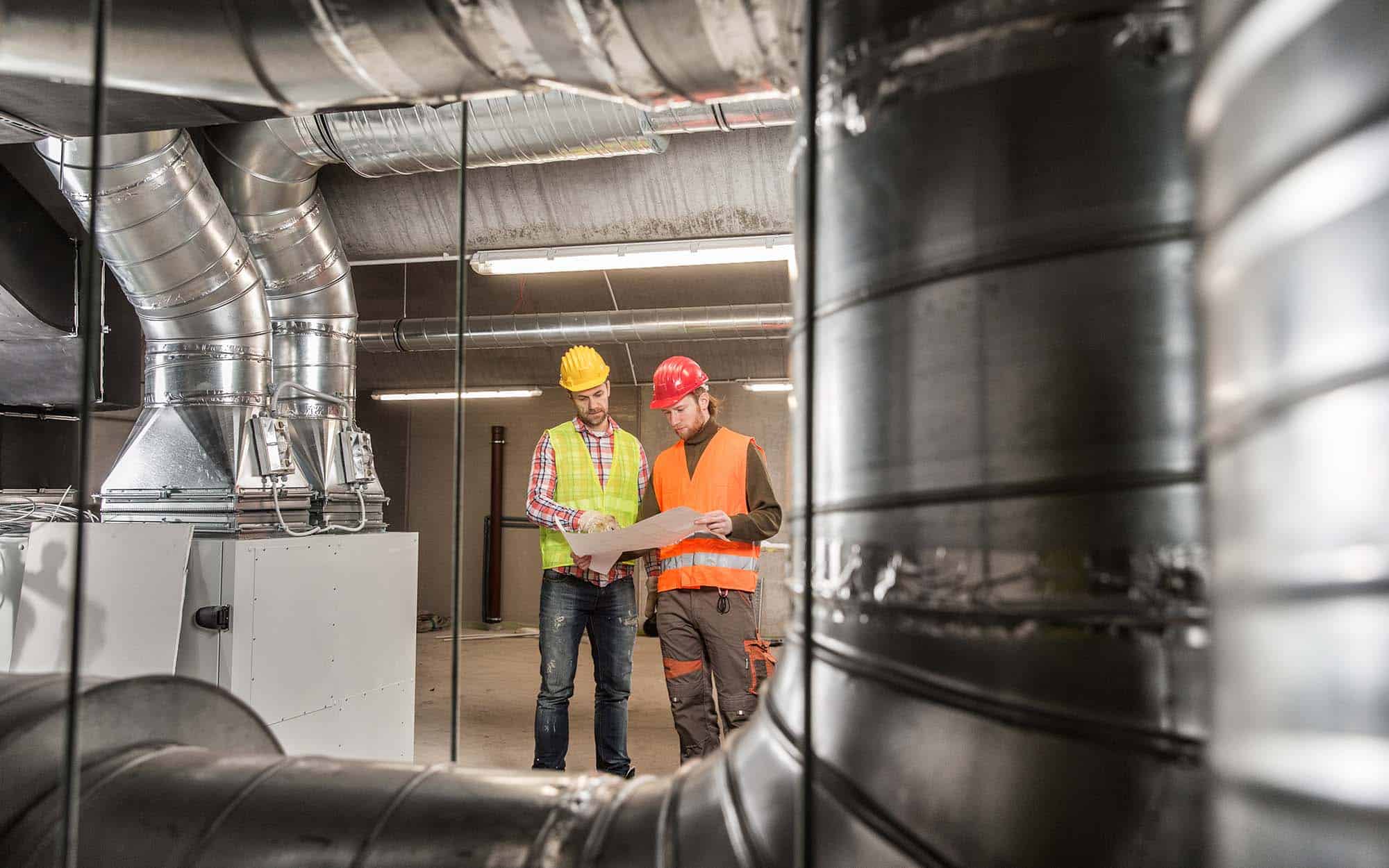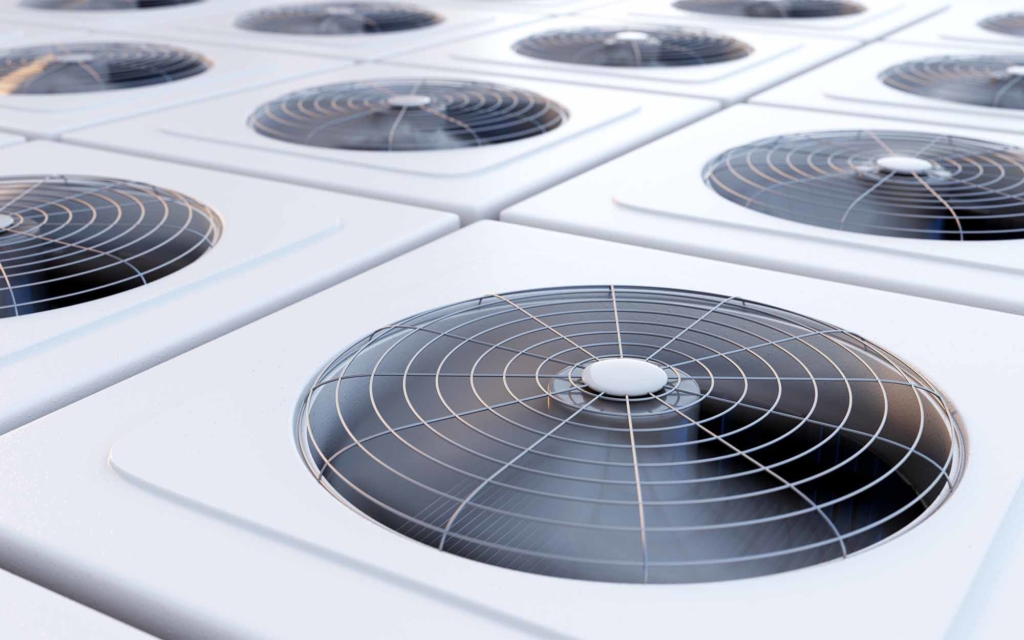
Efficient HVAC systems are vital to your buildings’ operations. Commercial HVAC units are more complex than residential systems, bringing their own unique issues into your facility.
Every machine malfunctions with age, even with regular maintenance. In the event of malfunctions, be quick to troubleshoot your HVAC system, as prompt repairs reduce the overall damage placed on your unit. Unfortunately, diagnosing specific issues can be difficult if you don’t know what you’re looking for. Continue reading to discover:
- The most common HVAC problems in commercial buildings
- How long commercial HVAC systems last
- Signs you need HVAC Repair
Six Standard Commercial HVAC Issues
Below are the six most common HVAC problems commercial buildings in the Tri-State area experience:
Dirty Filters
Keeping your system’s air filters in good shape is critical to the air quality in your building. Commercial HVAC filters remove dust, pollen, and germs from your air. Due to constant use, air filters eventually become saturated with particle matter, clogging and reducing your system’s airflow.
The good news—it’s an easy issue to fix. If you notice your HVAC output recently decreased, it’s time to consider investing in maintenance. Professional contractors safely remove your filters, replacing them with clean ones, improving the air quality in your building.
Energy Waste
HVAC operations account for roughly 60% of energy usage in commercial buildings. However, that’s assuming your system runs well. The energy required to power inefficient HVAC systems can be much higher—anywhere from 70-80%, depending on the size of your building.
As your system ages, wear and tear occurs, reducing the effectiveness of your unit. To compensate, your HVAC system draws extra energy to maintain the same output. If you’ve noticed utility bills increasing over the last few months, that’s a solid indicator of HVAC issues.
Luckily, scheduling preventive maintenance can help reduce your energy usage. During maintenance inspections, mechanical contractors assess your systems to find out where your HVAC is falling short. From there, they replace parts and make adjustments, ensuring your system runs smoothly, reducing your unit’s overall energy consumption.
Noisy Ventilation System
When your ventilation system starts making unusual noises, it’s a telltale sign of common HVAC problems. The cause of strange noises can vary, and the only way to accurately pinpoint the issue is with a professional’s help.
Reach out to your local HVAC contractors, and have them take a look at your unit to figure out where the strange noises originate from. More often than not, unusual sounds are traced back to the following factors:
- Loose bolts, which result in internal parts separating
- Internal parts falling off larger pieces, causing a rattling noise.
- Wear and tear on fan belts, causing friction between interior elements.
Regardless of the cause, you’ll need to schedule repair work with a contractor experienced in commercial HVAC problems.
Unresponsive Controls
Complications receiving commands from the control system is another common HVAC problem. If you’re having trouble with an unresponsive system, the thermostat is your most likely culprit.
Most modern thermostats are battery-powered. Eventually, they’ll run out of juice, making dead batteries a popular cause for unresponsive units. Try replacing your batteries, and if that doesn’t work, the problem may lie within your electrical systems.
Tipped circuit breakers can cause your HVAC to turn off. Reset your breaker and your unit should reboot. Circuit issues affecting your HVAC should be uncommon. If you notice breaker outages becoming more frequent, this indicates problems within your electrical wiring.
Drain Line Complications
HVAC units use drain lines to carry moisture away from the system. When your HVAC circulates air, condensation forms. Clean drain lines are crucial to your unit removing excess moisture. Unfortunately, with time, algae or debris can clog your drain lines.
Clogged drain lines are a common HVAC problem as water begins to overflow and back up your unit. This water accumulation can pose a serious threat to your HVAC unit, as well as your roof. Luckily, regular maintenance encompasses drain line care, helping prevent damages that come with clogged lines.
Low Refrigerant Levels
Refrigerant is a liquid chemical agent in your HVAC system, enabling your air conditioner to produce cool air. If your system is running in hot weather but your building isn’t cooling down, this is a common HVAC problem associated with low refrigerant levels.
Two main factors cause low refrigerant levels:
- Leaks in your HVAC’s internal tubes
- Your HVAC used up the existing refrigerant
Either way, it’s imperative to schedule service as soon as possible. A professional HVAC provider can refill your refrigerant levels or replace your tubing—ensuring your unit receives a consistent refrigerant flow.
Keep an eye out for all six of these common HVAC problems, as these are indicators your system might need repairs.
Signs You Need HVAC Repair Work
Conducting repairs at the earliest sign of damage is crucial to keeping your HVAC in good shape. To stay ahead of problems, there are three main factors to look out for:
Poor Airflow
As mentioned above, if you notice a change in air production, that’s a telltale sign your unit is experiencing common HVAC problems. If your AC has trouble regulating facility temperature or purifying air, it’s time to schedule professional service.
Increased Energy Use
Increased utility costs are often traced back to your HVAC’s energy usage. Your costs are largely composed of HVAC energy consumption, and while the performance decline might seem slow, it quickly adds up on your monthly bill.
Old Age
It’s unreasonable to expect your HVAC unit to last forever. Your HVAC system has a lifespan, and repairs won’t be enough to cut it at a certain point.
Gas Leaks
Gas leaks are arguably the most dangerous HVAC emergency because gas is extremely toxic to inhale and can cause explosions. If you have a gas leak, immediately evacuate your building and contact your 24-hour HVAC service provider to contain the leak with professional help.
Typical Life Expectancies for Commercial HVAC Systems
There’s no cookie-cutter answer to the life expectancy of commercial HVAC units, as a few factors can extend or reduce your system’s performance.
Investing in regular preventative maintenance has been shown to extend your system’s lifespan by a few years. In contrast, outside stressors such as climate and weather can reduce your HVAC’s years in service.
On average, the estimated lifespan for individual parts in your commercial HVAC system is:
- Air Conditioner: 15-20 years
- Furnace: 20 years
- Heat Pump: 15 years
- Boiler: 20-35 years
The quality of your initial installation also plays a prominent role in your HVAC’s lifespan, which is why you should always partner with an experienced provider you can trust.
Your Trusted Choice for HVAC Service in the Tri-State Area
Since 1983, businesses around New York have trusted React Industries to deliver high-quality HVAC services they can rely on.
At React, we treat our clients like family. By leveraging our years of experience with our established resources, we deliver cost-effective and energy-efficient HVAC solutions.
Looking to stay ahead of common HVAC problems this summer? You’re in the right spot. Reach out to our expert team to schedule your free assessment—we’re ready to help.
